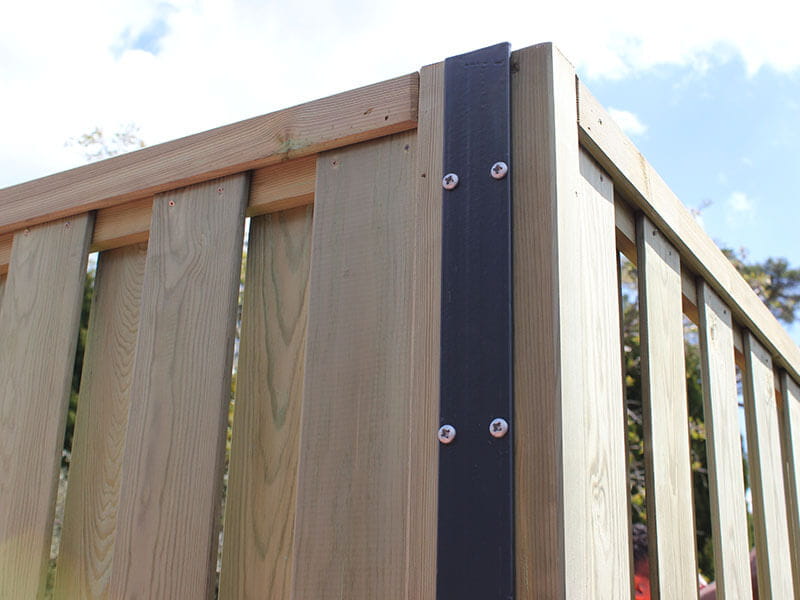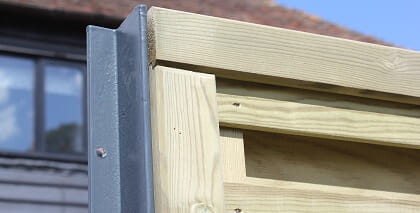26/07/2021 12:00 AM
Steel garden fence posts : Everything you need to know
Fence posts are an integral part of any fence run. They do most of the work for supporting the fencing and keeping it upright. If a fence post fails, the whole fence will look bad, and if posts become unstable and start to lean, the whole fence could fall over.

If you’re looking at options for your new garden fence, chances are you’ve come across multiple types of fence posts made from different materials, including steel. Steel fence posts are not only stylish, but easy to install and long lasting, and some types are even sustainable.
Relatively new to the market, they bring a new dimension to garden fencing, offering something different to the traditional timber or concrete fence posts that have been a staple part of garden fences for a number of decades. Whether you want to know more about steel posts or you are looking at options for your new garden fencing, we’ve listed everything you need to know.
What are steel garden fence posts, and how do they work?
Steel posts are installed at each end of the fence panel, essentially holding the panel in place and stopping it falling forward or backward, and at the same time joining multiple panels together. They work much like timber posts and allow fence panels to be securely fixed with screws to posts, supporting the panels and stopping them rattling against the posts (a common downside to concrete posts). It also prevents panels from being lifted to gain access to a property. Steel posts should be made from galvanised steel for long life. There will be an option to powder coat to add colour, and this will not only look good but also provide extra protection from the elements.

How do you install steel fence posts with panels?
Installing steel posts will depend on the overall fence height. Our Mi-T Metal posts are designed for use with our 1.8m high panels and gravel boards, producing a 1.97m high fence run. They should be secured into place in a hole 600mm in depth.
Choose a fence panel that works with the steel post and installation should be straight forward. Our Mi-T posts have a ‘T’ shape design so they can be used in a run and as corner posts (with the help of a timber infill piece at the end of the fence run). Panels are then screwed to the posts using specific screws (usually sold with the post).

How long will steel posts last?
The longevity of a fence post is integral to the overall lifespan of the fence. Fence posts are the most likely component to fail and therefore if poor quality products are chosen, it could force you to replace the posts or the whole fence line.
Good quality steel posts should last at least 25 years. Our Mi-T steel fence posts are guaranteed for 25 years so you can trust that they are designed to last. Like timber posts, the better the quality, the longer the fence post will last. Concrete posts usually last anywhere up to 20 years.

How expensive are steel posts?
This will depend on the supplier and the quality of the steel used. Our best advice, no matter what the material, is to invest in a quality product that is designed to last and has a long guarantee, from a reputable longstanding company/manufacturer. This will prevent the fence failing and eliminate the need to replace 2-3 times before a better-quality fence will need replacing.
Metal posts will be more expensive than timber or concrete, but they do outlast concrete and depending on the location and weather conditions, could outperform timber. Due to current timber sourcing, metal is currently more available than timber or concrete, so if you are in a hurry to get fencing installed, metal fence posts are your best option.

There are similar posts on the market. Read our blog post to find out which fence panels work well with Durapost.